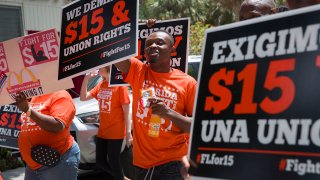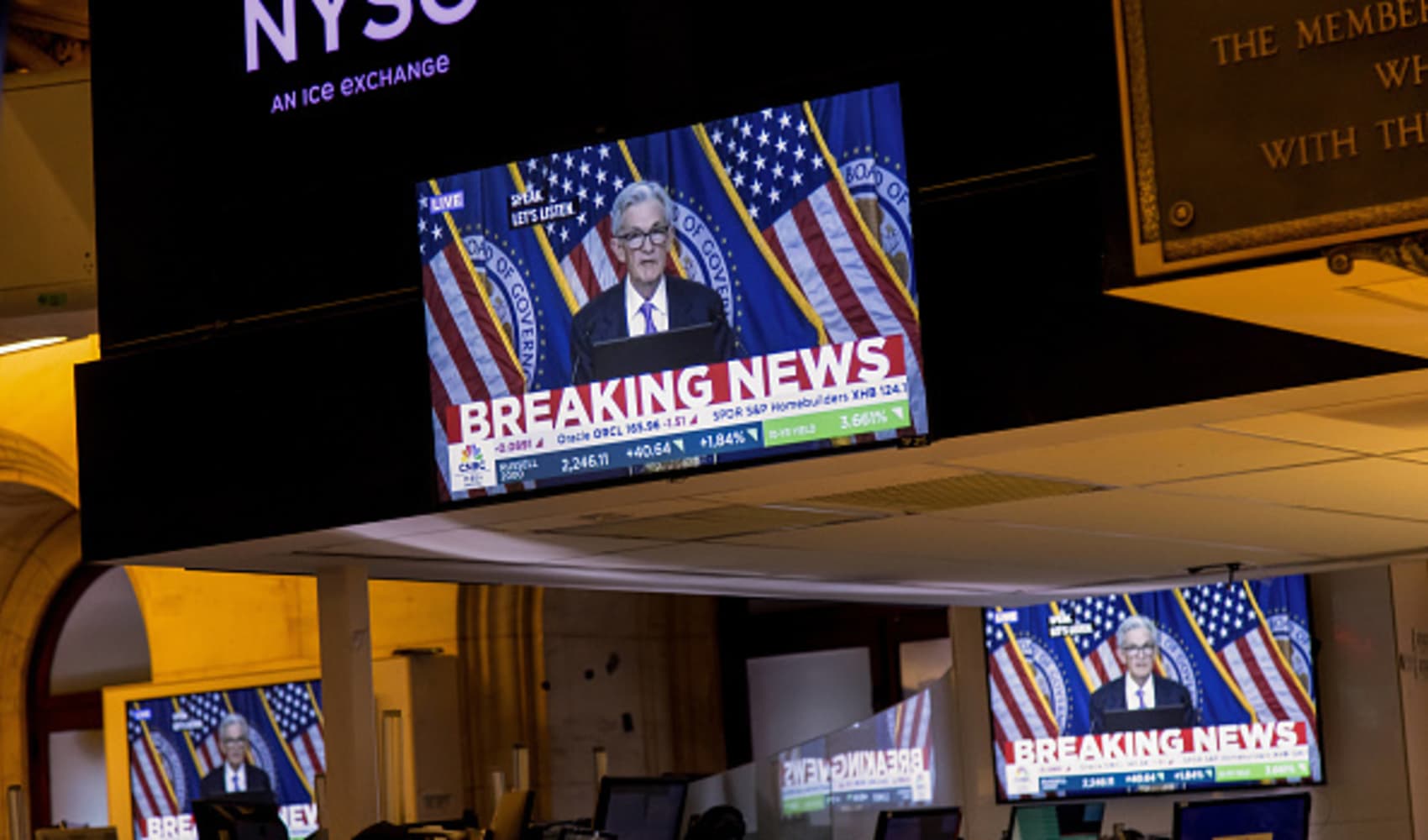
A report released Monday from the nonpartisan Congressional Budget Office concluded that raising the minimum wage to $15 an hour by 2025 could add tens of billions of dollars to the federal budget deficit.
That could actually help Democrats pass an increase.
The CBO report showed that the Raise the Wage Act of 2021, which was recently reintroduced in the House, would increase the cumulative budget deficit by $54 billion through 2031. It also said raising the minimum wage to $15 an hour by 2025 would increase net revenue and boost spending on programs such as Medicaid and Medicare while decreasing the cost of others, such as the Supplemental Nutrition Assistance Program, or SNAP.
More from Invest in You:
15 hottest careers for freelancers in 2021
How to boost income and find creative ways to make money
Plan out your success before launching your side hustle
The report could help Democrats push forward a federal minimum wage increase because it supports the argument that it could be included in any legislation passed via Senate budget reconciliation, meaning that it impacts outlays and revenue and is not an incidental cost.
"This is not just incidental to the budget [the wage hike], it's key to the budget," said William Spriggs, an economics professor at Howard University and chief economist for the AFL-CIO, on a Monday call with reporters. It has clear implications when we think about Medicare and Medicaid, which are two very large federal programs, he said.
No Republican support
Money Report
If Democrats can pass the federal minimum wage boost through reconciliation, it wouldn't require any Republican support. Instead, they would need only a simple majority in the Senate, with Vice President Kamala Harris casting the tiebreaking vote.
Democrats are preparing to use reconciliation to pass President Joe Biden's $1.9 trillion coronavirus relief package, which could include a federal minimum wage hike. Recently, Senate Democrats voted to prohibit raising the minimum wage during the pandemic, but through a nonbinding amendment. That means they could add the legislation back later -- and a first draft of the Education and Labor Committee's part of the coronavirus bill seen Monday does include the $15 federal minimum wage increase.
Bernie Sanders, the independent Vermont senator and chair of the Senate Budget Committee, fully supports using reconciliation to pass an increased federal minimum wage.
"Let's be clear. We are never going to get 10 Republicans to increase the minimum wage through 'regular order.' The only way to increase the minimum wage to $15 an hour now is to pass it with 51 votes through budget reconciliation," Sanders said in a Monday statement.
"The CBO has demonstrated that increasing the minimum wage would have a direct and substantial impact on the federal budget. What that means is that we can clearly raise the minimum wage to $15 an hour under the rules of budget reconciliation," he added.
The path forward is still uncertain
To be sure, it is still unclear if Democrats would be able to pass the measure through reconciliation. The Senate parliamentarian has yet to rule on the matter, and it's not a given that all Democrats would support a $15 federal minimum wage. Sen. Joe Manchin, Democrat from West Virginia, for example, opposes it.
And, economists disagree with some of the CBO findings, especially that it would reduce employment by 1.4 million workers.
Other reports found impacts and little to no job loss from a $15 minimum wage. A recent paper by Michael Reich, a professor of economics at the University of California, Berkeley, found that a wage boost would have a positive effect of $64.5 billion per year on the federal budget, mostly due to payroll tax revenue.
Another study from the left-leaning Economic Policy Institute found the wage hike would reduce expenditures on public assistance programs by $13.4 billion to $31 billion and boost payroll tax revenue by $7 billion to $13.9 billion.
"The bottom line is that the CBO finds that the benefit to low-wage workers of raising the minimum wage far outweighs the cost," said Heidi Shierholz, a senior economist and director of policy at EPI, on a Monday call with reporters.
SIGN UP: Money 101 is an 8-week learning course to financial freedom, delivered weekly to your inbox.
CHECK OUT: 3 money moves helped me save $100,000 by age 25, says Break Your Budget blogger via Grow with Acorns+CNBC.
Disclosure: NBCUniversal and Comcast Ventures are investors in Acorns.






